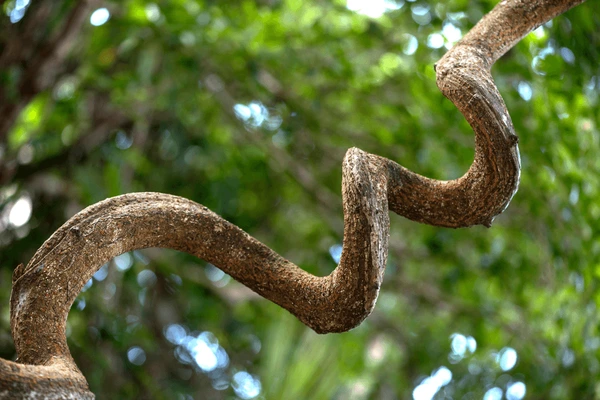In Assam, creeper conservation rides revived Karbi traditional game (The Hindu)

- 17 Jan 2024
Why is it in the News?
A dying traditional game, given a fresh lease of life at the ongoing Karbi Youth Festival (KYF) in central Assam’s Karbi Anglong district, has fuelled a drive for conserving a creeper with an African connection.
About African Dream Herb:
- The African dream herb, also known by various names such as Giant sea bean, snuff box, and Entada rheedii, is a perennial climbing vine valued by African traditional healers for its ability to induce vivid dreams, facilitating efficient communication with ancestors.
- Indigenous to Africa, Asia, Australia, and Madagascar, this vine thrives in tropical lowlands, along coastlines, river banks, woodlands, thickets, and riverine rainforests.
- Uses: A paste derived from its leaves, bark, and roots serve purposes ranging from wound cleaning to treating burns and addressing jaundice in children.
- The plant's tea, made from its entirety, aids in improving blood circulation to the brain and healing the aftermath of a stroke.
- The bark is employed to treat ailments such as diarrhoea, dysentery, and parasitic infections.
- This vine produces dark brown, spherical seeds, almost the size of a human patella or kneecap, used in the traditional game 'Hambi Kepathu,' associated with the origin of the Karbi community.
What is Hambi Kepathu?
- Also known as Simrit in some regions of Karbi Anglong, Hambi Kepathu is played on three rectangular courts with two teams of three members each.
- In this male-only game, players place a 'hambi' (glazed creeper seed) vertically on the midpoint of the boundary line for opponents to hit with their 'hambi.'
- The name Hambi Kepathu is derived from the first syllables of the names of a Karbi sister-brother duo, adding to the array of traditional Karbi games such as 'Pholong' (spinning top), 'Thengtom Langvek' (torch swimming), and 'Kengdongdang' (bamboo stilt race).
